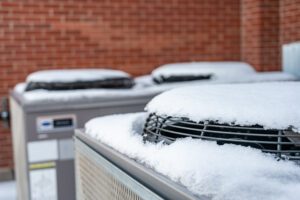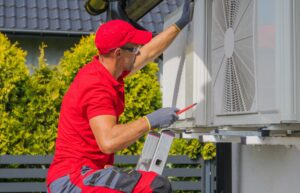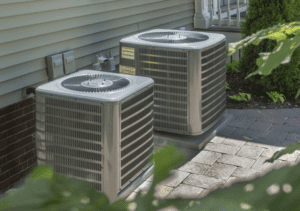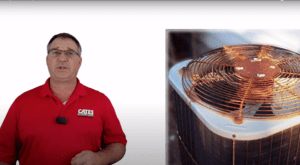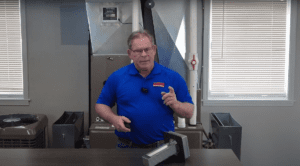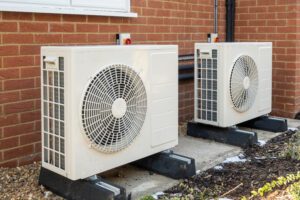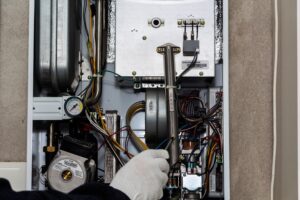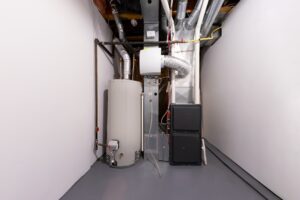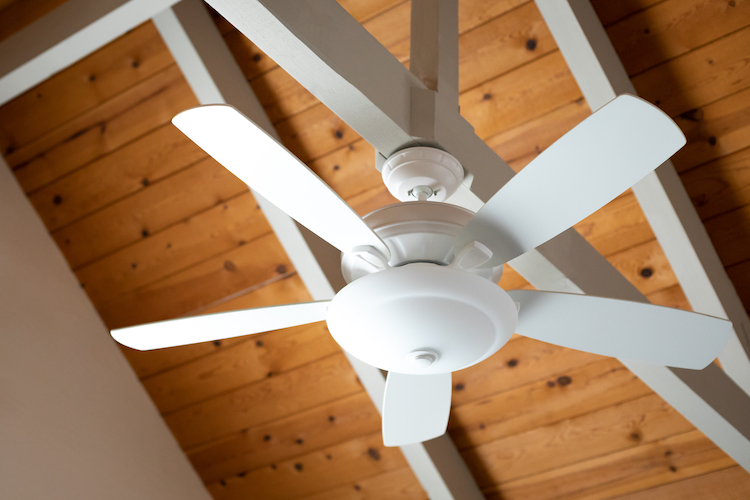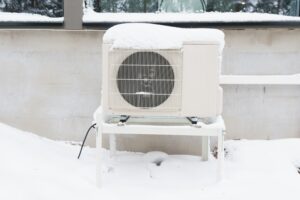Believe it or not, ceiling fans are not only excellent for keeping your home cool during summer, but they’re important throughout the year too. Ceiling fans bring in a cool breeze that helps cool down your body and your home. While using an air conditioner and a ceiling fan, some people might consider it overkill, but a ceiling fan is an excellent addition that helps you cut cooling costs for your home. It’s kind of logical, right? If ceiling fans keep your cooler, then perhaps the AC doesn’t have to go on full blast, therefore cutting AC costs that rack up higher than ceiling fan costs alone. But there’s more. When used tactically, ceiling fans can actually help you cut both cooling and heating costs for your home, allowing you to run your HVAC System less throughout the year. Here’s how:
How do Ceiling Fans Help with Cooling Your House?
Even though ceiling fans aren’t going to stop a heatwave, inside your house, they can break the temperature shield through evaporative cooling. Ceiling fans have electric motors that power the fan blades, pushing air under the fan and creating a breeze that can feel refreshing during Kansas City’s summer. The result is a chilly effect that will make the room cooler. However, on its own, a ceiling fan cannot significantly lower the indoor temperature and create a colder indoor climate, necessary to relieve the heat and humidity of summer. When you use the ceiling fan with your AC, however, you can lower the indoor temperature through your AC while combining it with the fan’s breeze. This creates the overall cooling effect necessary during the heat, without having to crank the AC temperature all the way down (and pay for the extra energy in the process!)
How do Ceiling Fans Help with Heating Your House?
People think fans are only used for cooling down, but that’s not where a fan’s function ends. Most ceiling fans come with a switch at the base that allows you to control the direction of the fan’s blades. If you toggle the switch when your fan is off, the fan blades will rotate in the opposite direction, rotating the blades clockwise rather than counterclockwise. A fan usually draws air from the room upwards and spreads it down the walls and across the ceiling, but when you reverse it, your fan blades push air from the top downward. Due to the natural laws of heat convection, warmer air rises, and with rotating blades, the warmer air is thrust downwards, allowing warm air circulation around the room. The process is faster when the fans spin clockwise, and essentially, warm air moves down to the ground repetitively, allowing the space to become warmer and warmer.
How do You Get the Most Out of Your Ceiling Fan?
Now that we know that ceiling fans are more than just useful for summertime only. Here are the steps you can take to get the most out of your Ceiling Fans.
Change the Fan’s Rotation
Most homeowners don’t know they can change their ceiling fans during summer and winter. During summer, ensure your fan blades point upwards and move in a counterclockwise direction, and the air will be pushed down to the floor, making the room cooler.
During winter, the fan blades should be turned downwards. The fans will be moving in a clockwise motion, forcing warmer air down into the living space. Most ceiling fans come with a switch to change the direction.
Turn the Fan Off
Turning your ceiling fan off may sound counterintuitive, but doing so saves electricity bills. Always turn off the fan when you are leaving a room. As fans do not lower the temperature but only circulate air, your fan will use needless electricity if a room is unoccupied.
Get app-controlled fans
Nowadays, ceiling fan companies are making digitally integrated ceiling fans. You can set timing schedules, change blade rotation, control spin speed, and have motion sensing technology turn on or off when you leave or enter a room. You can do all these from your smartphone, saving money and time.
Schedule a Heating and Cooling Inspection
If you have a space that doesn’t seem to heat up or cool down, you might have problems with your HVAC system, so it’s vital to check it out early. Homeowners are hit with unnecessary costs yearly due to poor maintenance of their heating and cooling systems. When you schedule a free professional estimate for a repair, or better yet, sign up for an affordable, regular professional maintenance program, you can rest assured that you’re setting yourself up for safe and effective heating and cooling, and saving yourself from replacing your HVAC system years before you need to.
Ceiling fans are best used as an accompaniment to air conditioners, and running both together will increase comfort and lead to effective energy and cost savings. For optimal effectiveness, follow the 4-degree rule: if your air conditioner is at 72 degrees and you turn on the ceiling fans, turn your AC temperature up by four degrees. When the cold strikes, switch your fan’s blades; this alternatively creates a heating effect that distributes warm air around the room.
To keep costs low and HVAC effectiveness high, it’s essential to stay up to date with your HVAC inspections and stay in the loop with Cates Heating and Cooling for all your HVAC, electrical, and plumbing needs. Our professionals will guide you on AC best practices, optimal home maintenance and provide service in case of emergency, should you have a problem. Breathe easy knowing that your home is taken care of when you trust Cates for your home maintenance and repair needs – Chat to us today with any questions, and sign up for our maintenance programs for all your HVAC needs.



